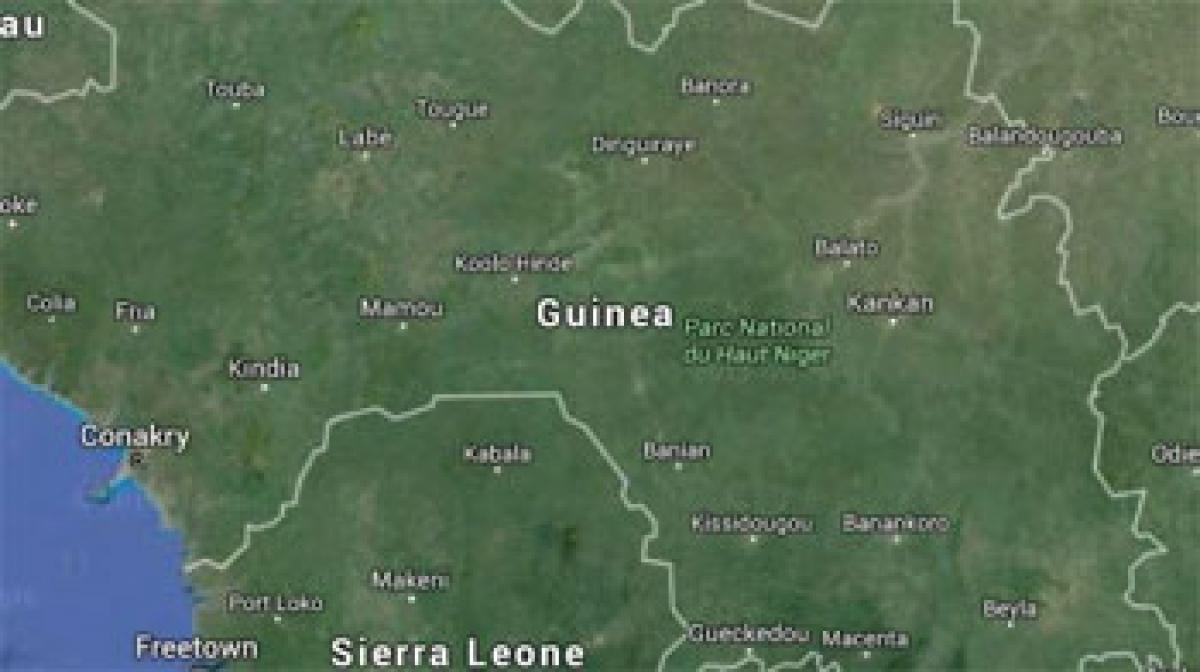Live
- Congress killers of Samvidhan: Modi
- Bejan Daruwalla’s horoscope
- Study warns: Ultra-processed foods may accelerate biological age
- CM pledges more political opportunities to Madigas
- Vizag attracts tourists as much as Kashmir
- Year-Ender 2024 Guide: Home remedies to relieve Period Pain.
- All India crafts mela begins today
- TTD gears up for Vaikunta Ekadasi fete
- Express Yourself
- Rajadhiraaj: Love. Life. Leela
Just In

x
Highlights
A key moment in the battle against the world\'s deadliest outbreak of Ebola will be reached on Tuesday when Guinea, the first of three West African states struck by the epidemic, is set to be declared free of the disease.
A key moment in the battle against the world's deadliest outbreak of Ebola will be reached on Tuesday when Guinea, the first of three West African states struck by the epidemic, is set to be declared free of the disease.
One of the poorest nations in the world, Guinea leapt to global prominence after becoming the host country for "patient zero" an infant, Emile Ouamouno, who on December 2013 became the outbreak's first victim.
The fever spread stealthily and terrifyingly, striking two neighbouring countries, Sierra Leone and Liberia, with sporadic cases also in Mali, Nigeria and Senegal.
As world health watchdogs struggled to respond, the death toll mounted at a dizzying rate, igniting fears in Europe and elsewhere of a virus that mocked borders and national controls.
Around 11,300 people died out of almost 29,000 recorded cases, according to a World Health Organization (WHO) tally that many experts believe greatly understates the impact of the outbreak.
It was the deadliest epidemic of Ebola since the disease was first identified in 1976.
The last known case in Guinea is a three-month-old baby named Nubia, who was born with the disease but whose recovery was confirmed on November 16.
That started the countdown to Tuesday's expected announcement, as a period of 42 days twice the virus's incubation period is required to declare a country Ebola-free.
"It's the best year-end present that God could give to Guinea, and the best news that Guineans could hope for," said Alama Kambou Dore, an Ebola survivor.
"From 2013 to 2015, Guineans suffered, they lived and survived, they endured, they were stigmatised, rejected, even humiliated because of this disease, which leapt out of nowhere."
The WHO officially declared Sierra Leone Ebola-free on November 7, triggering wild celebrations in the capital Freetown. On December 3, Liberia released its last two known Ebola cases from hospital, starting the six-week countdown.
Celebrations
A WHO representative is expected to make the hugely anticipated announcement in Conakry, the Guinean capital, late morning on Tuesday.
This will be followed by official ceremonies on Wednesday, where President Alpha Conde will be flanked by representatives from donor countries and dozens of organisations, from MSF to the Red Cross and the US Centers for Disease Control (CDC), that were frontline responders in the crisis.
They will also pay tribute to the 115 health workers who died fighting Ebola and eight members of an Ebola awareness team who were killed by hostile locals in Womey, in Guinea's forested southeast.
On Wednesday afternoon, a range of top African musicians, including Youssou N'Dour and Mory Kante, will take to the stage for a "memorial" concert -- entitled "Bye-bye, au revoir Ebola" in this francophone country.
Despite the jubilation and hopes for a return to normal life, experts sound a note of caution.
Ebola has been combatted by a classic health strategy of identifying people with the virus, containing those who were in close proximity to them, and ensuring that health workers rigorously follow a strict protocol on wearing protective clothing to prevent direct contact with the patient.
But there are also unknowns the virus can persist beyond 42 days in certain body fluids, and in sperm can live for nearly nine months and there is a risk of rebound.
Liberia, for instance, was first declared free of human-to-human transmission in May, only to see the fever resurface six weeks later.
It was then officially credited with beating the epidemic for a second time in September, only for a small number of other cases to occur.
"We have to be very careful, because even if open transmission has been stopped, the disease has not been totally defeated," said Alpha Seny Souhmah, a Guinean health technician who himself was infected but survived.
In its two-year battle against Ebola, Guinea has had to overcome many obstacles.
Grinding poverty and a crumbling medical infrastructure are only the first items on the list.
Frontline workers have also had to combat the rumour mill, entrenched denial, fear of Ebola stigma and resistance to confinement measures deemed authoritarian or unreasonable.
They also had to persuade people to abandon funeral traditions whereby mourners touch the body of their loved one a potent pathway to infection.
More On

Next Story
More Stories
ADVERTISEMENT
© 2024 Hyderabad Media House Limited/The Hans India. All rights reserved. Powered by hocalwire.com







